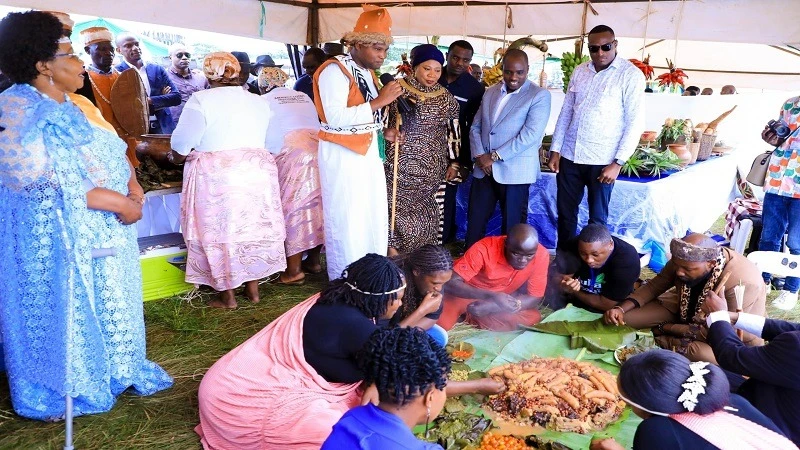Concerted effort needed to fight against sexual stereotyping

YESTERDAY, Tanzania joined other countries across the world to mark International Day of the Girl Child 2024 with the theme “Girls' vision for the future”. Target 4.1 of Sustainable Development Goal (SDG) 4 states that “By 2030, ensure that all girls and boys complete free, equitable and quality primary and secondary education leading to relevant and effective learning outcomes.” Goal 5 states “Achieve gender equality and empower all women and girls.”
Girls especially in Africa face more challenges than boys because many societies are patriarchal in which men are regarded as superior to women and also boys are regarded as superior to girls. As a result, in some families boys are given more opportunities to excel in life than girls. The girl’s workload is also heavier than the boy’s. This situation restricts girls from realising their potential.
As the UN puts it with the right support, resources and opportunities, the potential of the world’s more than 1.1 billion girls is limitless and when girls lead, the impact is immediate and wide reaching: families, communities and economies are all stronger, our future brighter. Therefore, it is time to listen to girls, to invest in proven solutions that will accelerate progress towards a future in which every girl can fulfil her potential.
As we mark International Day of the Girl Child we should remind each other that both boys and girls are equal and should be given equal opportunities to excel in life. As the Constitution of the United Republic of Tanzania (R.E. 2005) and other regional and international human instruments stipulate no person should be discriminated against on the basis of sex
Article 13(5) of the Constitution states that: “For the purposes of this Article the expression ‘discriminate’ means to satisfy the needs, rights or other requirements of different persons on the basis of…sex…in life such that certain categories of people are regarded as weak or inferior and are subjected to restrictions or conditions whereas persons of other categories are treated differently or are accorded opportunities or advantage outside the specified conditions…”
The Beijing Declaration and Platform for Action unanimously adopted 1995 advances the rights of not only women, but also girls. It is the first declaration to specifically stipulate girls’ rights. On December 19, 2011, the UN General Assembly adopted Resolution 66/170 to declare October 11 as International Day of the Girl Child to recognise girls’ rights and the unique challenges girls face across the world.
Girls are often stereotyped and excluded, and this starts in childhood and they grow up in society in which they find themselves disregarded in many aspects. Yet, when both boys and girls are given equal opportunities they grow up experiencing gender equality and equal respect.
Meanwhile, Tanzania joined the world on October 10 to mark World Day against Death Penalty. It was a day to call for the abolition of the barbaric and inhuman punishment to be practised in civilised societies. In Tanzania, murder and treason are two criminal offences that attract the death penalty under section 197 of the Penal Code (R.E. 2022) and a person convicted of any or both of them is subjected to death by hanging.
Death penalty both in Tanzania and across the world has been fought against by human rights activists and there are calls to replace it with life imprisonment. Based on Amnesty International (AI) Global Report of 2023, there were 1,153 executions in 2023, an increase by 31 per cent (270) from 883 known executions in 2022.
Thus, last year recorded the highest figure since the exceptionally high number of 1,634 in 2015, and the first time since 2016 (1,032) that the known total was over 1,000. This number excludes the number of thousands of people believed to have been executed in some countries which do not disclose the number of persons executed in their countries. It also excludes extrajudicial killings by state agents.
According to AI, in 2023 Tanzania recorded at least 3 death penalty sentences and 691 people were under the sentence of death by the end of 2023. Tanzania was also among the 23 abolitionist in practice, meaning countries that retain the death penalty for ordinary crimes such as murder, but can be considered abolitionist in practice in the sense that they have not executed anyone at least 10 years ago and are believed to have a policy or established the practice of not carrying out executions.
The World Coalition against Death Penalty suggests that the global campaign against death penalty is a vital component of a broader campaign of advocacy for a more humane and effective justice system that truly protects and serves all members of society.
It says by rejecting the death penalty and embracing a holistic approach to security that addresses the root causes of crime and violence, advocates, politicians, and lawmakers can together build a world where justice is restorative rather than retributive, and where the justice system promotes the safety and dignity of all. “The abolition of the death penalty is not only a moral imperative, but a necessary step toward creating a safer, more just, and more equitable world.”
Today’s inspiring quote: “All our dreams can come true if we have the courage to pursue them.” – Walt Disney.
- The author is a Dar es Salaam-based lawyer. He can be reached at [email protected]
Top Headlines
© 2024 IPPMEDIA.COM. ALL RIGHTS RESERVED

























